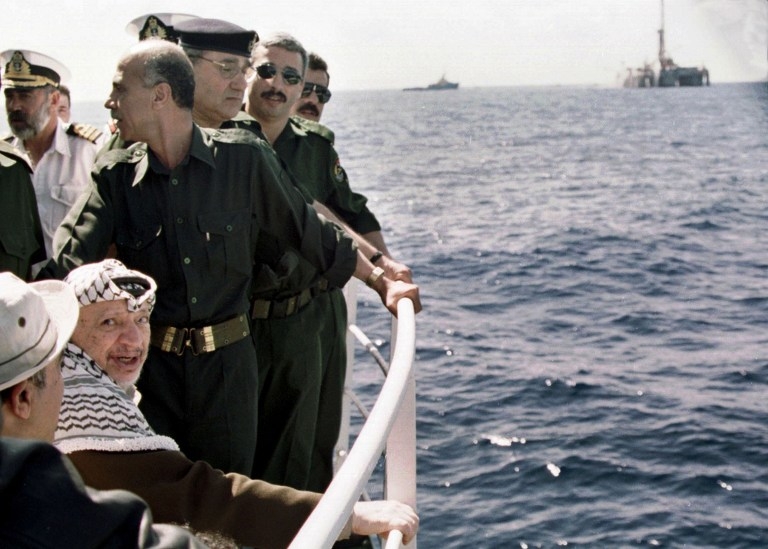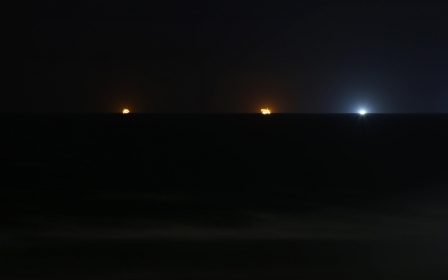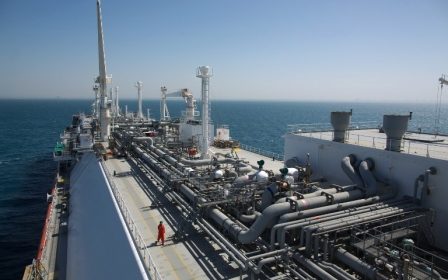Why hasn't Gaza Marine produced gas?

The development of the Gaza Marine, an offshore gas field discovered in 1999, has been seen as a major stepping stone towards Palestinian energy independence.
In November 1999, a 25-year contract for gas exploration and development of the field was signed between British Gas Group (BG Group), the Palestinian-owned Consolidated Construction Company (CCC), and the Palestinian Investment Fund (PIF), a sovereign wealth vehicle that reinvests in Palestinian projects.
''This is a gift from our God to our people, to our children, to our women, to our people inside and outside, to our refugees and those who are living here on our land,'' Yasir Arafat, then Palestinian president, declared after he lit Gaza Marine’s first flare in 2000.
Sixteen years later, gas has never been produced from the field.
With the shelving in March of a $1.2bn deal that would have seen Israeli gas supplied to a Palestinian power generation company, Gaza Marine is back in the spotlight after Palestinian officials suggested the gas that Israel would have supplied will now come from the Palestinian field.
Why Palestinian officials - who declined to answer MEE's questions - believe gas might be produced from Gaza Marine now is unclear. Repeated requests for comment from CCC’s London office went unanswered. BG Group, meanwhile, has responded by saying that it continues to investigate options for Gaza Marine’s development and that it has not put a date on a final investment decision.
There are many reasons observers offer to explain why the deal has been held up since 1999.
One reason suggested is the presence of obstacles - namely financial and territorial - put up by the Israeli government. When the field was discovered in 1999, it was generally thought that Israel - then importing gas from Egypt - would be the main buyer of the gas from Gaza Marine, according to Victor Kattan, a postdoctoral fellow at the National University of Singapore and a policy advisor for Al-Shabaka.
It was "widely believed to be an Israeli precondition for allowing the development of the fields to go ahead," Kattan wrote in a 2012 Al Shabaka paper.
The high cost of investment for a gas field necessitates that a buyer is found ahead of production. Over the years, however, negotiations between UK energy giant BG Group, which owns the license on the field, and successive Israeli governments have never produced a deal. Kattan said this is because, at least until 2007, the Israelis wanted to pay below market prices for the gas.
Israeli officials have made it clear they don't want to give the Palestinian Authority money for fear it would end up in the hands of Hamas. However, the PA, along with BG Group, have made efforts to create "a transparent and auditable mechanism" for gas revenues that will "not run afoul with US and European regulatory restrictions," according to a confidential 2005 US diplomatic report released by Wikileaks.
"[Benjamin] Netanyahu's administration cannot stomach any scenario in which a Hamas-run Palestinian administration accesses and develops their own resources," wrote journalist Nahfeez Ahmed.
Ahmed and others have gone a step further to argue that Israel sees the development of Palestinian gas as a security threat, suggesting that Israeli wars on Gaza were foremost battles to prevent Palestinians from becoming energy independent.
Also problematic has been the lack of Palestinian access to the field, which is between 17 and 21 miles off the Gaza coast, given a six-mile limitation now imposed by Israeli forces in contravention to the 20-mile area set by the 1993 Oslo Agreements. Additionally, developers would still need clearance from Israel to export the gas because Israel controls the pipes, according to Palestinian officials.
Another answer may lay in the precarious balance of doing business in a frequent warzone: several sources told MEE that Gaza Marine is a minor concession in BG Group’s portfolio so there is no real incentive for the company to push the matter, especially without any assurance that another Gaza war isn’t around the corner.
“My impression is that BG is really not very interested in developing the field,” said Amiram Barkat, a journalist at Israel’s Globes energy journal. “They say it’s out of economic reasons, that the field is not worth the investments in terms of feasibility. But I know that CCC are much more interested.”
With Israel’s own natural gas discoveries in the 2000s, prospects of Israel buying Palestinian gas have diminished.
However, a decision by Israel’s Antitrust Authority, expected in coming weeks, however, could potentially shift the impasse around the field, Barkat said.
In December, the authority warned it might declare the current ownership structure of the Leviathan field, shared between US-based Noble Energy and Israeli company Delek Drilling, as a cartel and petition for reorganisation.
A shake up on Leviathan, Israel’s largest offshore gas field, would increase uncertainty about Israeli gas supplies and open up the market to new competition to supply the Israeli Electric Company (IEC), potentially, said Barkat.
“At the price of $5 MMBT, [gas from Gaza Marine] is no longer so expensive because the IEC now pays for Tamar at $5.7,” he said. “So it makes sense that Gaza Marine would compete for the IEC contract option.”
Here is a timeline that tracks the history of the Gaza Marine and related events.
Middle East Eye propose une couverture et une analyse indépendantes et incomparables du Moyen-Orient, de l’Afrique du Nord et d’autres régions du monde. Pour en savoir plus sur la reprise de ce contenu et les frais qui s’appliquent, veuillez remplir ce formulaire [en anglais]. Pour en savoir plus sur MEE, cliquez ici [en anglais].




